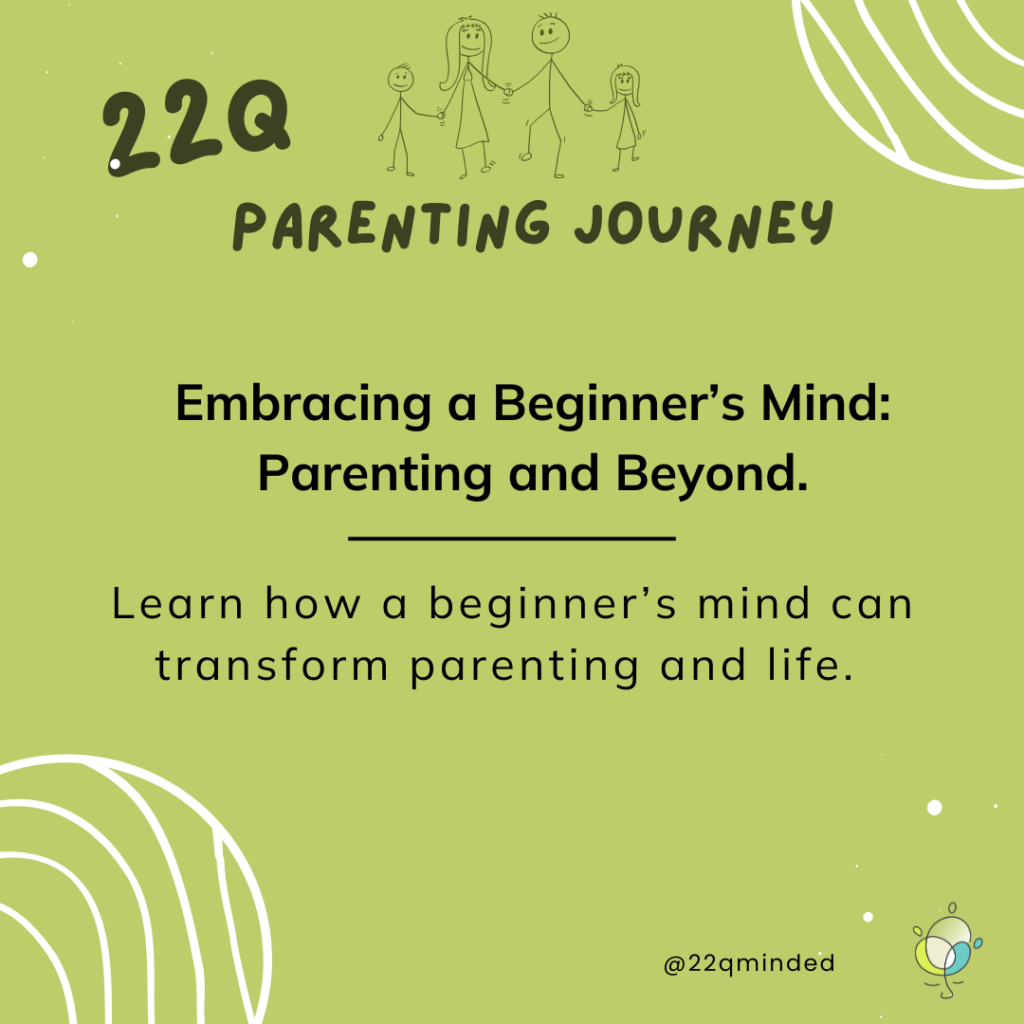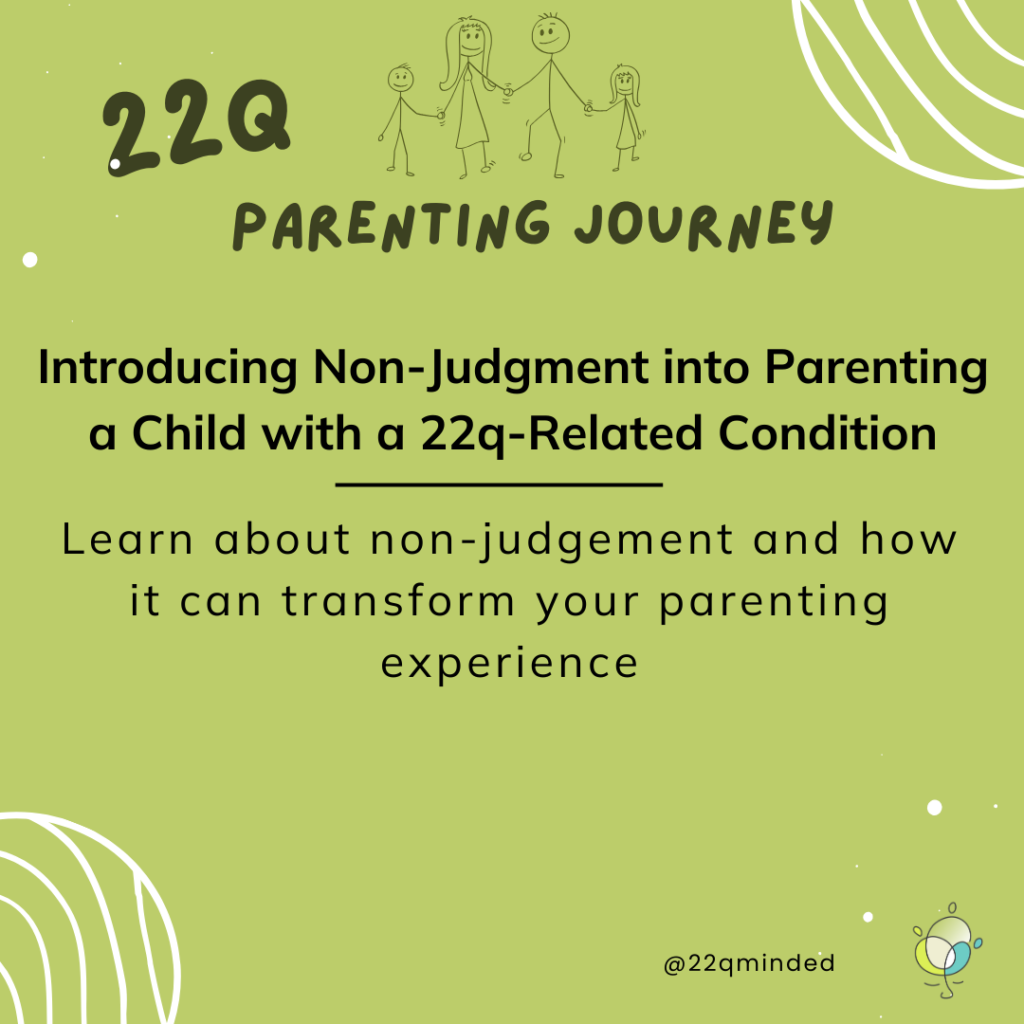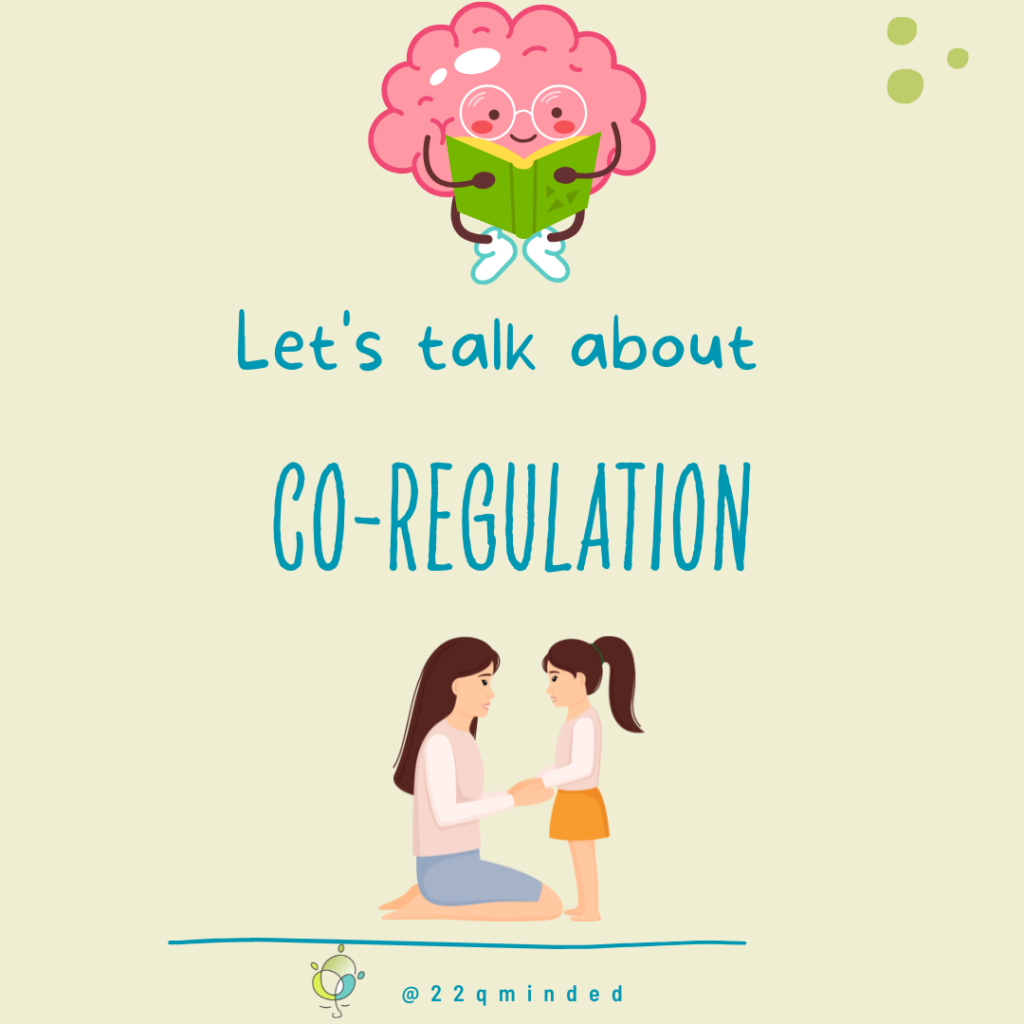Imagine your mind as a blank canvas, ready to absorb every experience as if it were brand new. This is the essence of adopting a “beginner’s mind” in mindfulness—a practice that encourages curiosity, openness, and a sense of wonder, much like a child exploring the world for the first time.
In this blog, we will explore the concept of a Beginner’s Mind when parenting a child with a 22q-related condition. A beginner’s mind invites us to let go of preconceived notions and judgments, approaching each moment with freshness and exploration. Just as a novice in any craft starts with fresh eyes and eagerness to learn, we can cultivate this mindset daily. Doing so makes us more attuned to the present moment, noticing details we might otherwise overlook. It’s about stepping out of “autopilot” and fully engaging in life—whether sipping a cup of tea, walking in nature, or navigating a busy day.
A Beginner’s Mind in Parenting
As parents, adopting a beginner’s mind can transform the way we interact with our children. It allows us to see them with fresh eyes, free from the weight of past experiences or expectations. Instead of reacting based on habits or assumptions, we can respond to each moment with patience, empathy, and curiosity. This perspective fosters deeper connections, greater understanding, and the opportunity for growth—for both us and our children.
Sometimes, our past experiences with our children shape how we view them. For instance, if your child had a challenging start in life, such as being born prematurely, undergoing early surgeries, or crying frequently as a baby, those memories may linger and colour your perspective. For parents of children with 22q-related conditions, medical issues, or developmental delays, ongoing worries about the future can make it even harder to let go of preconceived ideas.
Without realising it, we might assign labels to our children: the “mature eldest,” the “baby of the family,” or the “vulnerable child.” Labels like “demanding” or “forgetful” can shape how we view their behaviours, often reinforcing those perceptions and overlooking moments that don’t fit. These labels can trap us in rigid, repetitive patterns, making it harder to see the subtle ways our children grow and change. Over time, this automatic perspective limits not only their potential but also our ability to nurture and support their development.
Seeing Ourselves and Others Anew
A beginner’s mind doesn’t just apply to parenting; it’s a powerful tool for viewing ourselves, our partners, and others in our lives with fresh eyes. For instance, you might hold rigid labels about your partner, like “irresponsible,” “overprotective,” or “sloppy.” These judgments can cloud your interactions and block opportunities for understanding and collaboration. Approaching your co-parenting relationship with curiosity and openness can pave the way for positive changes.
Similarly, adopting a beginner’s mind helps us notice our own behaviours and reactions with greater clarity. It’s a chance to reflect on our patterns, let go of unhelpful habits, and embrace growth—both as individuals and as parents.
Rediscovering the Magic in Everyday Moments
One of the most beautiful aspects of a beginner’s mind is the way it helps us rediscover the magic in ordinary experiences. Think back to the first time your child tried something new: swinging on a playground, jumping in a puddle, or tasting an unfamiliar food. The sense of wonder and excitement they brought to that moment can remind us to approach life with the same spirit.
By observing our children closely, we can learn from their natural curiosity and openness. When we let go of rigid labels and discover something new or unexpected in our child, we give them the gift of seeing themselves fully and provide the space they need to grow. This shift doesn’t just benefit our children—it enriches our own lives, opening the door to creativity, resilience, and joy.
A Practical Exercise: Practising Beginner’s Mind with Your Child
Here’s a simple exercise to try:
Set Aside 10 Minutes: Choose a quiet time when you can focus fully on your child without distractions.
Observe Without Judging: Spend a few moments simply observing your child as if you’re seeing them for the first time. Notice their expressions, movements, and the way they interact with the world around them.
Ask Open-Ended Questions: Engage with your child by asking questions that spark curiosity, like “What do you enjoy about this?” or “How does that make you feel?”
Reflect on the Experience: Afterward, take a moment to reflect on what you noticed. Did you learn something new about your child? How did it feel to approach them with fresh eyes?
This exercise helps you step out of autopilot mode and connect with your child in a deeper, more mindful way.
The Gift of a Beginner’s Mind
Cultivating a beginner’s mind is about reclaiming the joy of discovery and finding wonder in the seemingly mundane. Whether it’s in parenting, relationships, work, or daily routines, this mindset helps us approach life with openness and curiosity. It’s a reminder to see the world—and the people we love—with fresh eyes, embracing the endless possibilities that each moment holds.
If you are interested in learning more about Beginner’s Mind and other mindful parenting skills, check out our Care4Parents program in the 22qMinded shop. A program specifically designed for parents raising children with 22q-related conditions.




